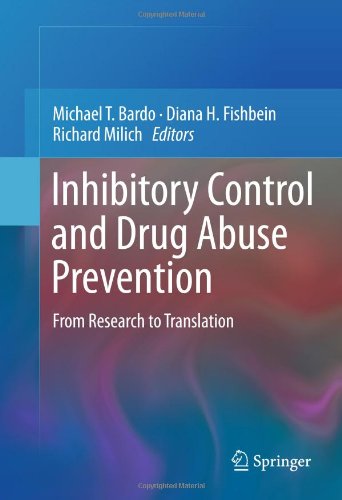

Most ebook files are in PDF format, so you can easily read them using various software such as Foxit Reader or directly on the Google Chrome browser.
Some ebook files are released by publishers in other formats such as .awz, .mobi, .epub, .fb2, etc. You may need to install specific software to read these formats on mobile/PC, such as Calibre.
Please read the tutorial at this link: https://ebookbell.com/faq
We offer FREE conversion to the popular formats you request; however, this may take some time. Therefore, right after payment, please email us, and we will try to provide the service as quickly as possible.
For some exceptional file formats or broken links (if any), please refrain from opening any disputes. Instead, email us first, and we will try to assist within a maximum of 6 hours.
EbookBell Team

4.8
24 reviewsInhibitory Control and Drug Abuse Prevention From Research to Translation Michael T. Bardo, Diana H. Fishbein, Richard Milich, editors Some of the most promising findings about drug abuse come from research into behavioral inhibitory control processes—specifically, that individuals with substance use disorders have inhibitory control deficiencies compared to non-abusers, and that the impulsivity associated with adolescence may account for young people’s vulnerability toward drug-taking behavior. But while this neurobiological approach has steadily influenced the treatment of addiction, it has had only minor effect on prevention efforts. Inhibitory Control and Drug Abuse Prevention was compiled to help correct this situation, synthesizing what we know about the neuromechanics of risk-taking, and mining its ample potential in addiction prevention. Noted experts review up-to-date neurobehavioral studies regarding inhibitory control in humans and laboratory animals, discuss their implications for age groups at risk for impulse control deficits or dysfunction, and apply these findings to the development of innovative, effective prevention strategies. Among the topics covered in this multidisciplinary volume: • Genetic and environmental determinants of risk-taking behavior. • Impaired inhibitory control as a mechanism in drug abuse. • Childhood inhibitory control deficits and risk for substance use. • Social influence in inhibitory control. • Translating research into advocacy and policy. • Targeting anti-drug public service messages to sensation-seeking youth. Inhibitory Control and Drug Abuse Prevention represents a sea change in understanding addictive behavior, and is timely reading for researchers and practitioners in the fields of drug abuse (as well as related high-risk behaviors, e.g., delinquency, unsafe sex, gambling), health psychology, and neuropsychology.